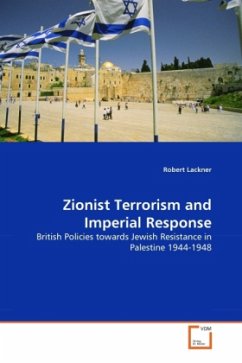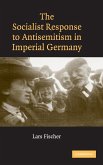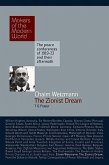During the 1920's and 1930's, the growth of the Jewish population due to Zionism and National Socialism had a negative effect on the Arab-Jewish relationship in Palestine. Considering her own strategic position, Great Britain as the mandatory power restricted Jewish immigration in order to appease the neighbouring Arab countries. As a consequence, the Zionist terror organisations Irgun and Lehi declared war on the British in early 1944, killing or wounding hundreds of soldiers, policemen and colonial officials. Until its very last days in Palestine, the Empire found no appropriate policy either to break up the underground or at least to stop the attacks on military and civilian targets. This book describes the guerrilla tactics adopted by the Jewish terrorists and examines the failure of Britain's political and military strategy, highlighting the reasons for her inability to stop terrorism.








